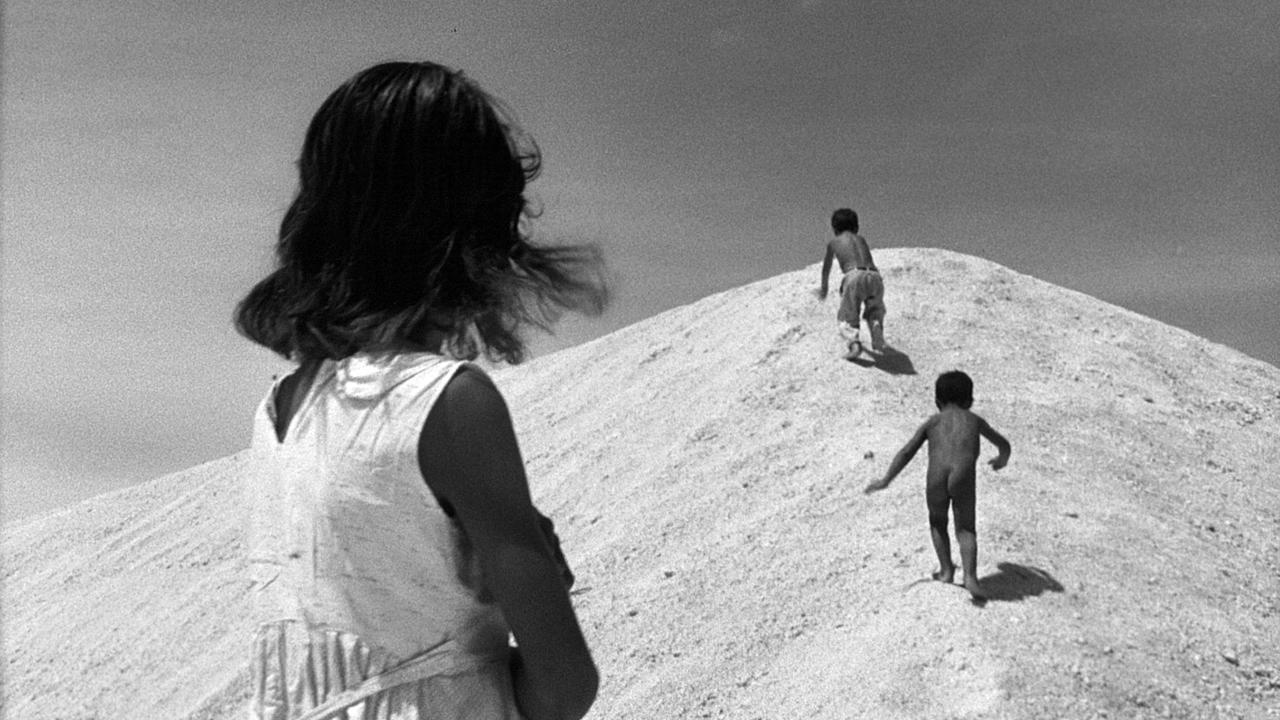filmgreg
This doc explores the harsh life of salt miners & fishermen along a destitute, barren strip of coastline along the Venezuelan coast in the late 50's, before (SPOILER ALERT) mechanized salt mining does away with their way of life. Much like Luis Buñuel's "Land Without Bread", it's an unromanticized look at a harsh, unforgiving way of life that would be completely alien to most of us today.
museumofdave
This documentary-style, relatively short feature film is poignant, stunning in it's simplicity and rich in its humane impulses; it features actual workers in an almost impossibly hostile semi-desert bordering on the ocean that has served as a salt mine for over 450 years; the huge pyramids of salt are impressive, but even more so are the men who climb them with 140 pound baskets of salt, dumping them on top and receiving a few coins in their palms each time--and the women at the base of the pyramids who bag and tie the salt in hideously hot and dry climate. While this group produces much of the money for the locals in their adobe villages, another group produces the food, venturing out in a large boat every morning hopefully to return with nets full of fish, as they have for hundreds of years. There is a strong sense of community that binds these people, and filmmaker Margot Benacerraf, instead of having anyone employ dialogue, follows her subjects with mostly poetic narration and a strong musical soundtrack.There is actually a conclusion, and how the viewer reacts to it will certainly reflect attitudes toward modernization and the erasure of ancient traditions; this is a remarkably visual film, stunning to look at, whether from the top of a salt pyramid or bending down to a simple grave decorated with seashells in lieu of the flowers which cannot grow in this part of Venezuela. This is a valuable film document of a disappeared occupation; be sure to watch the "extra" which, fifty years later, follows up on some of the original workers.
1minutefilmreview
A Venezuelan documentary about the salt pyramids in a place called Araya and those who made their living there. Trust us, whatever job you're doing right now, it is nothing compared to what these people have to put up with. They toil from day to night, with little payment and in the scorching sun. They were resigned to their fate since childhood and it is the only thing they know. The director chose to shoot like a fly on the wall (in this case, on a salt pyramid) what they actually do in a day. After you watch this, you'll appreciate your job and life like you never did before. It is an affirmation of the human ability to take on what seems impossible and turn it into an amazing possibility. The cinematography in black and white was illuminating too. Take a chance and give this a try. You won't regret it and might even learn a thing or two about human being's indomitable perseverance.
Arturo Serrano
"Araya" is a movie that makes you want to cry... it is so beautiful in its black and white and its simpleness that it's an equivalent of Neorealism but without the sadness. This movie shared the Cannes Award with none other than "Hiroshima, mon amour", althought it has had less luck in becoming a well known film. Its director founded the Cinemateca Nacional (a place where one can see many good old movies) and is also President of Fundavisual Latina, so although she hasn't directed anyome she continues to work on cinema.


 AD
AD

